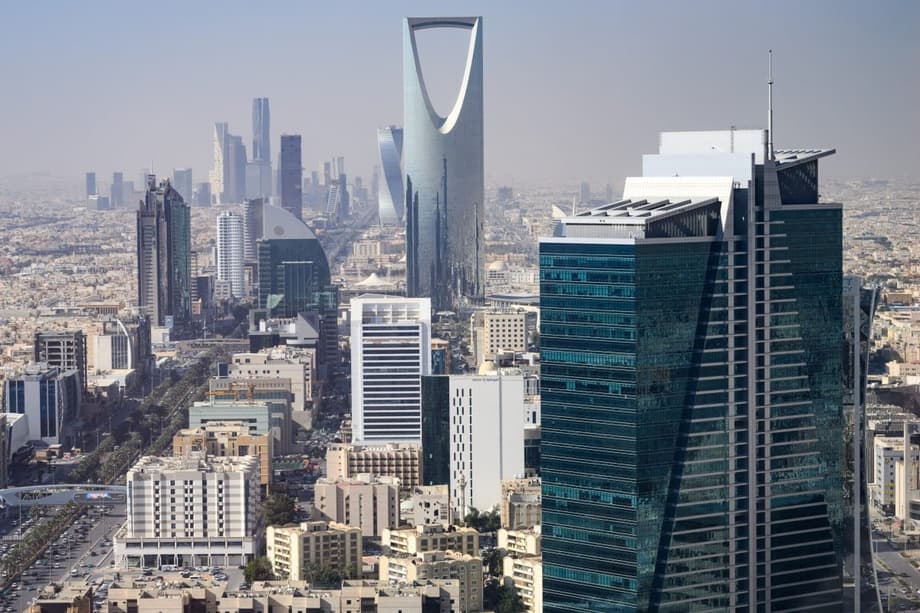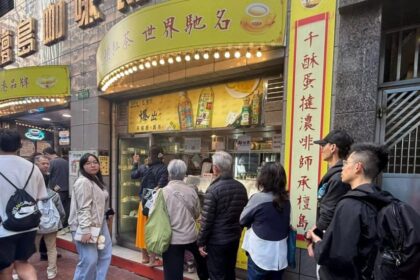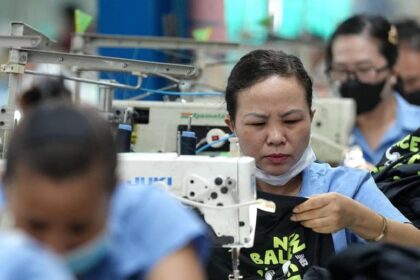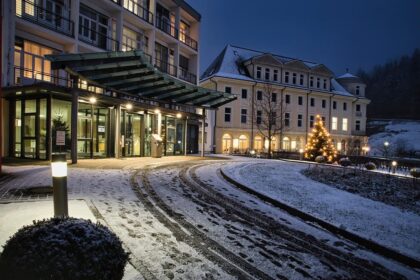A new Middle East draw for Hong Kong talent
Well paid jobs in Saudi Arabia are turning the kingdom into an unlikely magnet for Hong Kong professionals. The pull is strongest in sectors tied to Saudi Vision 2030, the national program to diversify the economy beyond oil and build a tourism, transport, entertainment and technology hub. For many Hongkongers, the move was never on the life plan, until headhunters called with packages that dwarf salaries back home and a chance to build something at pace in Riyadh or Jeddah.
- A new Middle East draw for Hong Kong talent
- What jobs are hot, and why pay can jump
- Culture gaps that surprise many newcomers
- Life in Riyadh, Jeddah and the new leisure scene
- Entry rules and the new visa on arrival arrangement
- Saudization and labor reforms: what it means for expats
- Bridging East Asia and the Gulf
- Firsthand voices
- Risks and realities to weigh
- Highlights
Riyadh Air, a new national carrier backed by the Public Investment Fund, is one emblem of that shift. It is hiring sales executives, operations specialists and digital teams as Saudi Arabia races to attract tourists and connect more cities by air. Other mega projects such as NEOM, the Red Sea destination and Qiddiya park are generating demand up and down the value chain, from aviation and hospitality to construction, procurement, finance and marketing.
Chloe Wong, a Hong Kong native in her early thirties, moved to Riyadh after being recruited to join the sales and distribution team at Riyadh Air. She had worked in Abu Dhabi earlier, and the pay and pace in Saudi Arabia stood out.
“This is a fast growing market that brings new opportunities every year, and I want to get ahead of them.”
Wong said her compensation more than doubled compared with her previous role. The premium reflects the shortage of experienced hires in a market expanding at speed, the absence of personal income tax on salaries, and a willingness by employers to include housing, transport and annual flight allowances in offers for mid career and senior staff.
What jobs are hot, and why pay can jump
Demand is strongest in areas that Vision 2030 prioritizes. Airlines and airports need route planners, sales leads and revenue managers. Hotels and tour operators are adding management and guest experience roles in advance of large visitor flows. Sports, events and live entertainment are scaling teams to run seasons of concerts and festivals. Tech, digital payments, cloud and cybersecurity are growing as the government accelerates digitization across ministries and services.
The construction wave is just as large. Massive urban and coastal developments require project managers, quantity surveyors, safety officers and procurement specialists. Chinese customs data show steel shipments to Saudi Arabia rose by about 41 percent in the first nine months of 2025, a proxy for how much building material the kingdom is absorbing. Finance and advisory firms are also busy with project finance, public private partnerships and sovereign backed initiatives, pulling in analysts and client facing talent.
What a typical package includes
For many Hong Kong candidates, the headline number is only one part of the value. Offers often include a housing allowance, a transport stipend or company car, private medical insurance, annual flights for the employee and sometimes for dependents, and end of service benefits that accrue with tenure. Some employers provide relocation support and temporary accommodation on arrival. The absence of income tax on employment income means take home pay can be far higher than in Hong Kong or the United Kingdom.
Where Cantonese and Mandarin skills help
Saudi entities are deepening links with Asian partners, from project contractors to investors and brands. That creates room for bilingual talent who can bridge Saudi teams with Chinese state enterprises, private developers or suppliers. Client service, relationship management and due diligence roles can benefit from fluency in English plus Cantonese or Mandarin, which many Hongkongers bring.
Culture gaps that surprise many newcomers
Every move comes with an adjustment curve. Saudi Arabia has evolved quickly since 2016, when women started driving and cinemas reopened, but it remains a conservative country shaped by Islamic law and local custom. Alcohol is prohibited. Public spaces are mixed and family friendly, yet modest dress is expected in malls and offices. Work and daily routines pause at prayer times. The weekend runs Friday to Saturday, so many offices operate Sunday to Thursday.
Ramadan changes the rhythm of life. Working hours often shorten, restaurants adjust to sunset dining, and many social gatherings shift to night. Business travel and meetings continue, yet schedules can be more fluid. Non Muslim residents respect the fast and avoid eating or drinking in public during daylight hours.
Workplace etiquette
Meetings often start with coffee and conversation before decisions move forward. Hiring managers value trust and personal rapport as much as resumes. Senior approvals can take time, so patience and persistence help. Arabic is the national language, but English is common in multinational teams. Learning a few Arabic greetings signals respect. Public displays of affection are frowned upon, and public criticism of religion or the royal family is illegal.
Life in Riyadh, Jeddah and the new leisure scene
The Saudi lifestyle has opened up. Riyadh Season fills months with concerts, sporting events and pop up parks. Jeddah has a seaside promenade and a growing food scene. Families can access international schools, with waiting lists at the most popular campuses. Many expatriates choose gated compounds for amenities and a community feel, while others live in modern city apartments closer to work.
Rents in Riyadh have climbed as demand outpaces new supply in central districts. Employers sometimes adjust allowances to match the market, so candidates should check the latest rates for areas near their offices. Summers are extremely hot, and commutes by car are common. Domestic flights are frequent between major cities, and weekend trips to Bahrain or the United Arab Emirates are popular when schedules allow.
Practical living tips
- Carry a digital copy of your iqama once it is issued, and keep the original in a safe place.
- Use widely accepted local payment apps to speed up daily purchases.
- Save maps offline for new districts where coverage can be patchy.
- Dress modestly in public areas and observe local norms.
- Drive defensively and plan peak hour travel with extra time.
Entry rules and the new visa on arrival arrangement
Hong Kong passport holders now enjoy visa on arrival access to Saudi Arabia at designated points of entry. The Immigration Department in Hong Kong lists the airports in Riyadh, Jeddah, Dammam and Medina, plus the King Fahd Bridge and Al Batha land ports, as eligible control points. Stays of up to 90 days are permitted under this visitor scheme. City leader John Lee Ka chiu has also said that Saudi nationals visiting Hong Kong can stay visa free for up to 90 days.
This convenience is useful for exploratory trips, interviews and short business visits. It does not replace a work visa. Residents who accept employment need a work permit and a residence card called an iqama, which is issued after medical checks and immigration processing in the kingdom. Dependents receive their own residency tied to the principal employee.
Hong Kong residents can also visit all six Gulf Cooperation Council states with visa on arrival or visa free treatment. The move reflects closer ties with the Gulf and a push to make travel easier for business and tourism.
Saudization and labor reforms: what it means for expats
Saudi Arabia is localizing parts of its labor market through Nitaqat rules that set minimum shares of Saudi nationals in many sectors. Employers plan hiring around those quotas. Foreign professionals are still recruited in areas where skills are scarce, yet some roles and customer facing functions are reserved for citizens. Candidates should ask recruiters how positions are classified and whether the company is meeting its quotas.
Reforms in 2021 eased parts of the sponsorship system for many private sector workers. Eligible employees can change jobs after contract expiry without employer consent, obtain exit and re entry permits through a government portal, and receive their end of service benefits as per law. Domestic workers are not covered by all changes, and authorities recently granted a six month window for many domestic workers who had left their employers to correct their legal status. The trend points to a more regulated market with clearer processes, though exact rules vary by occupation.
Bridging East Asia and the Gulf
Saudi investment in infrastructure, sports, tourism and technology is drawing a mix of global contractors and Asian partners. Hong Kong professionals bring deal making skills, bilingual abilities and experience in fast scaling services. Banks, asset managers and advisors are expanding in Riyadh to support sovereign projects and private capital, and they value talent that can interface with mainland China and Southeast Asia.
Officials say Vision 2030 has passed key milestones. Investment minister Khalid Al Falih has said that by the end of 2024 about 85 percent of initiatives were either completed or on track. New airlines, railways and ports are part of a push to make Saudi Arabia a logistics and visitor hub. For candidates, that translates into a pipeline of roles across project delivery, operations and customer experience.
Firsthand voices
Personal stories show the promise and the learning curve. The Riyadh Air executive from Hong Kong described the excitement of building teams and routes in a start up environment backed by the state. For her, the chance to help shape a new airline while advancing her career outweighed the discomfort of moving to a culture she had only known through work trips.
Indian professionals, one of the largest expatriate communities in Saudi Arabia, describe a similar arc. Chartered accountant Navin Goel has lived in Riyadh for a decade and told visiting journalists that the city felt welcoming from the start.
“Work wise, Riyadh has always been welcoming. I came in 2015, at a time when the changes were happening. There is nothing here that makes us feel that we belong to another country.”
He and Avinash Gupta, a partner who expanded an India based financial services firm into Riyadh, spoke about how daily life encourages integration.
“We feel part of the country. We go to any store, any office, anywhere, we are always welcome. The locals here try to speak to us in Hindi.”
Their experiences differ from the Hong Kong journey, yet both point to a city where expats who engage with the culture, learn the rules and build relationships tend to thrive.
Risks and realities to weigh
Culture shock is real for some families. Alcohol rules are strict, online speech is monitored, and penalties for drugs are severe. Non Muslims may not enter the holy cities of Mecca and Medina. Laws on public decency and photography exist, so newcomers should learn them early.
Employment contracts spell out probation, leave, allowances and end of service benefits. Verify who pays for dependent visas and school fees, how annual flights work, and what happens if you change jobs. Exit and re entry processes are now online for many private sector workers, yet final exit still requires paperwork. A trusted employer and clear HR support make a difference.
School places, healthcare networks and housing availability vary widely by district. Trailing spouses who want to work need their own permits. Women work in many sectors and lead teams across airlines, banking, retail and tech, but day to day norms can differ from Hong Kong. Success usually comes down to preparation, patience and finding a supportive peer group.
Highlights
- Hong Kong professionals are relocating to Saudi Arabia for high pay and fast growing roles tied to Vision 2030.
- Riyadh Air hiring and giga projects are creating demand in aviation, hospitality, construction, tech and finance.
- Visa on arrival is available to Hong Kong passport holders at Saudi control points for visits up to 90 days, work still requires an iqama.
- Saudization rules shape hiring and 2021 reforms improved job mobility for many private sector workers.
- Entertainment and sports events have expanded rapidly, yet conservative social norms remain in place.
- Indian expatriates report a welcoming environment, echoing a wider sense of integration among foreign professionals.
- Offers often include housing and transport allowances, medical insurance, annual flights and end of service benefits.
- No personal income tax on salaries boosts take home pay compared with Hong Kong or the United Kingdom.
- Understand legal and cultural rules, and plan for schooling, healthcare and housing before relocating.












